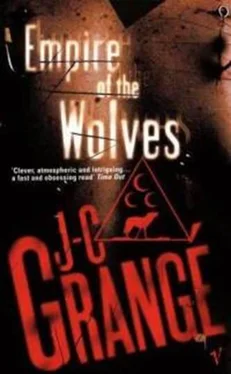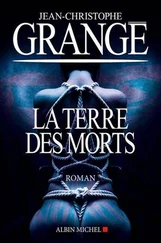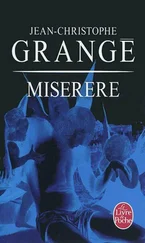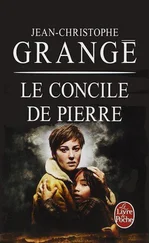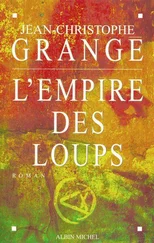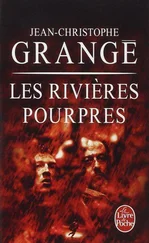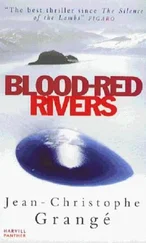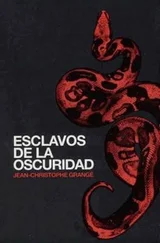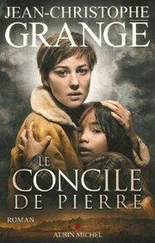On the negative side, Sema placed just one point, but it outweighed all the others.
Azer Akarsa was still at large.
And this threat confirmed her decision.
She had to find him and, further up the line, discover who had put out this contract. She did not know, had never known, his name. But she knew that little by little, she would expose the entire pyramid.
At that moment, all she was sure of was that Akarsa would return to Turkey. He was probably already back, being sheltered by his people, protected by complacent police officers and politicians.
She grabbed her coat and left the room.
It was in her memory that she would find the path that led to him.
First, Sema went to the Galata bridge, near her hotel. She looked long and hard at the far side of the canal of the Golden Horn, the city's most famous panorama. The Bosporus and its boats; the Eminönü quarter and the New Mosque; the stone terraces and flights of pigeons; the domes and arrowlike minarets, from which five times a day the voices of the muezzins poured out.
Cigarette.
She did not feel like a tourist, but she did feel that this town-her town-might provide her with a clue, a spark to give her back all of her memory. For the moment, she could still see the past of Anna Heymes, which was being gradually replaced by confused sensations, linked to her daily life as a drug smuggler. Snatches from an obscure trade, with no clear reference points, no personal details that could give her the slightest indication how to find her brothers again.
She hailed a cab and asked the driver to cruise through the city, at random. She spoke Turkish without an accent, and without the slightest hesitation. That language burst from her lips as soon as she needed it-like a source hidden in her inner self. So why was she thinking in French? Was it an effect of her psychic conditioning? No. This familiarity went back further than that. It was an essential part of her personality. During her life, her education, there had been this strange implant…
Through the window, she observed each detail: the red Turkish flags, decked with a golden crescent and star, which marked the town like a wax seal; the blue walls and the brown buildings, stained with pollution; the green roofs and domes of the mosques, which oscillated between jade and emerald in the light.
The taxi drove along a wall: Hatun Caddesi. Sema read the names on the signposts: Aksaray, Kücükpazar, Carsamba… They resonated vaguely inside her, evoking no particular emotions or distinct recollections.
Yet, more than ever, she sensed that something, anything-a monument, a sign, a street name-could stir up that quicksand and shift aside the memory blocks within her. Like wrecks lying on the seabed, which you only need to brush against for them to drift back up to the surface…
The driver asked, "Devam edelim mi?"' ( "Shall we continue?")
"Evet." ( "Yes.")
Haseki. Nisanca. Yenikapi.
Another cigarette.
The din of traffic, the tide of passersby. The urban press culminated here. Yet, the overall impression was of gentleness. Spring was making the shadows quiver above this tumult. A pale light glittered though the ironlike air. A silver gleam hung over Istanbul, a sort of gray coating smothering any violence. Even the trees had something worn about them, a cinder coat that calmed and soothed the spirit…
Suddenly, a word on a poster drew her attention. A few syllables on a red- and- gold background.
"Take me to Galatasaray," she told the driver.
"To the school?"
"Yes, the school. To Beyoglu."
A large square. on the outskirts of the Taksim quarter. Banks, flags and international hotels. The driver parked at the entrance of the pedestrian precinct.
"It will be quicker on foot," he explained. "Take Istiklal Caddesi. Then after about a hundred yards, you-"
"I know"
Three minutes later. Sema had reached the railings of the school, jealously protected by the somber gardens. She went through the gate and dived into what was almost a forest. Firs, cypresses, eastern planes and lime trees, with their green blades, soft shades, shadowy mouths… Sometimes a patch of bark added some gray, or even black. On other occasions, a tip or bough split into a lighter line-a broad pastel smile. Or else dry almost blue thickets with the transparency of tracing paper. The whole spectrum of vegetation was on display.
Beyond the trees, she spotted a yellow facade, surrounded by sports fields and basketball courts. It was the school. Sema stayed hidden among the boughs and looked at the pollen-colored walls, the neutral cement surfaces. The badge of the school, an S intertwined with a G, red trimmed with gold, on the navy blue sweaters of the pupils walking there.
But above all, she listened to the rising din. It was a sound that is identical in all latitudes: the joy of children freed from school. It was noon. Time for the lunch break. More than a familiar noise, it was a call, a rallying cry. Sensations suddenly gathered around her, entwining her.. Suffocated by emotion, she sat down on a bench and let the images of the past flood in.
First her village, in distant Anatolia. Beneath a limitless, merciless sky, the wattle and daub huts, clinging to the sides of the mountains.
The rippling planes of high grasses. The flocks of sheep on the steep slopes, trotting along at an angle, as gray as filthy paper. Then, in the valley, the men, women and children living like stones, broken by the heat and the cold..
Later, the camp-a disused spa resort, surrounded by barbed wire, somewhere in the Kayseri region. The daily indoctrination, training and exercises. Mornings spent reading Alpaslan Türkes's Nine Lights, repeating nationalistic doctrines, watching silent films on Turkish history. Hours devoted to learning the basics of ballistics, telling the difference between different sorts of explosives, shooting with assault rifles, handling knives…
Then suddenly, the French school. Everything changed. A suave, refined environment. But it was probably even worse. She was the peasant. The girl from the mountains, among the sons of notables. She was also the fanatic, the nationalist holding on to her Turkish identity and ideals amid middle-class, left-wing pupils all dreaming of becoming Europeans…
It was here, at Galatasaray, that she had fallen so much in love with the French language that in her mind, she turned it into her new mother tongue. She could still hear the dialect of her childhood, those clashingly crude syllables, being gradually supplanted by these new words, those poems and books that modulated her slightest thought and molded each new idea. The world then, quite literally, became French.
Then the time came to travel. Opium. The fields in Iran, set in steps above the jaws of the desert. The patches of poppies in Afghanistan between the fields of corn and vegetables. She could picture that nameless, undefined frontier. A no-man's-land of dust, dotted with mines, haunted by wild buccaneers. She remembered the wars. The tanks, the Stingers-and the Afghan rebels playing their game of buskachi with the head of a Soviet soldier.
She could also see the laboratories. Airless structures full of men and women wearing cloth masks. The white dust and acidic fumes, the morphine base and the refined heroin… her real work had begun.
It was then that the face became clear.
So far, her memory had worked in only one direction. Each time, a face had acted as a detonator. Schiffer's appearance had been enough to bring back the previous months' activities-the dope, running away concealment. Azer Akarsa's smile raised up the camps, nationalist meetings, men brandishing their fists, with their pinkie and index fingers raised, screaming high-pitched wails or else crying "Türkes basbug!" -and had identified her as a Wolf.
Читать дальше
